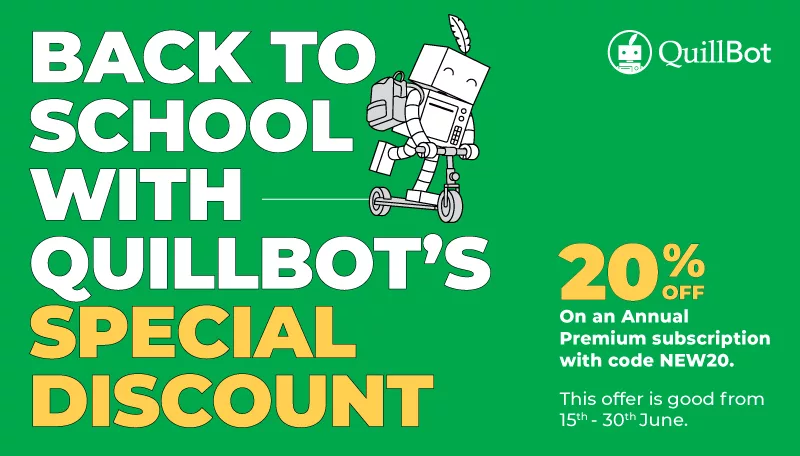
Copywriting offers endless opportunities for those who can master the craft. Whether you’re looking to break into the industry or you’re an experienced professional, knowing how to find top copywriting jobs online is key to success. This guide will walk you through the essential steps and tips for landing high-quality gigs.
Understanding the Role of a Copywriter
What Does a Copywriter Do?
A copywriter is responsible for crafting persuasive, engaging content intended to drive action. This could range from writing ads that sell products to drafting blog posts that build brand awareness. The scope of work can vary widely, making the role both versatile and demanding.
Different Types of Copywriting
There are several branches within copywriting, each with its own set of rules and best practices:
- SEO Copywriting focuses on writing optimized content to rank well on search engines.
- Product Copywriting involves creating descriptions that entice customers to buy.
- Email Marketing Copywriting centers on drafting compelling email campaigns aimed at customer retention.
Essential Skills for Landing Copywriting Jobs
Writing and Editing Skills
Strong writing and editing skills are non-negotiable for any copywriter. Your writing should be clear, concise, and engaging, while your editing abilities ensure that every word serves a purpose.
SEO and Digital Marketing Knowledge
Copywriters must have a good grasp of SEO principles. Understanding how to incorporate keywords without compromising the quality of your content is a critical skill.
Adaptability and Creativity
No two clients are the same. Being able to adapt your writing style to suit different industries, tones, and audiences is vital for success.
Building a Strong Portfolio
Importance of a Diverse Portfolio
Your portfolio is your calling card. Having a diverse range of writing samples that showcase different styles and formats will make you more appealing to potential clients. Include examples of ads, blog posts, email campaigns, and product descriptions.
How to Create Writing Samples if You’re Just Starting Out
If you’re new to copywriting, creating mock assignments can help build your portfolio. Volunteer to write for non-profits, or create fictional projects that demonstrate your range and creativity.
Best Platforms to Find Copywriting Jobs
Freelancing Platforms
Popular freelancing platforms like Upwork and Fiverr provide ample opportunities to land copywriting jobs. However, competition is fierce, so it’s important to craft a standout profile and proposal.
Job Boards
Job boards like LinkedIn, Indeed, and Glassdoor are great resources for finding remote and full-time copywriting positions. Many companies post job openings specifically seeking freelance copywriters.
Specialized Copywriting Job Platforms
Sites like ProBlogger and Contently cater specifically to writers, offering a variety of writing jobs from different industries.
How to Stand Out from Other Copywriters
Crafting a Winning Proposal
A well-crafted proposal is often the deciding factor in whether you land a gig. Make sure to address the client’s needs, showcase your relevant experience, and explain why you’re the best fit for the job.
Personal Branding as a Copywriter
Your brand is what sets you apart from the competition. Invest in a professional website, maintain an active social media presence, and share valuable insights about copywriting to build authority in the industry.
Networking and Building Relationships
Online Networking Tips
Networking is an essential part of finding the best copywriting jobs. Online platforms like LinkedIn are invaluable for building a professional network. Join relevant groups, follow industry leaders, and engage in conversations to increase your visibility. Contributing thoughtful comments on posts or articles written by industry experts can help establish your credibility.
Forums and communities like Reddit, Slack channels, and Facebook groups dedicated to copywriting and freelancing can also be excellent places to network. Engaging with these communities can lead to potential job opportunities or collaborations.
Offline Networking Tips
While online networking is crucial, don’t overlook offline opportunities. Attending industry events, copywriting workshops, and marketing conferences can provide face-to-face networking opportunities that may lead to job offers. Be prepared to introduce yourself, share business cards, and explain what you do succinctly. Building relationships offline can sometimes result in long-term professional connections that online networking can’t always match.
The Importance of Specializing in a Niche
Benefits of Niche Specialization
Specializing in a niche can give you a competitive advantage in the crowded copywriting market. Clients are often willing to pay more for a writer who understands their industry inside and out. When you specialize, you can market yourself as an expert, making it easier to command higher rates and attract clients who are looking for specific expertise.
For instance, if you specialize in healthcare copywriting, you’ll have a deeper understanding of the language, trends, and challenges in that sector, making your work more valuable to clients in that industry.
How to Choose the Right Niche
Selecting the right niche comes down to your interests, experience, and market demand. Think about what industries you’re passionate about or have experience in. Research market trends to see which niches are in demand. Popular niches include technology, healthcare, finance, and eCommerce.
It’s important to choose a niche that excites you, as this will make your work more enjoyable. Additionally, picking a niche with high demand will make it easier to find clients.
Setting Your Rates as a Copywriter
Factors That Affect Pricing
Setting your rates can be challenging, especially for new copywriters. Several factors influence how much you can charge, including your experience, expertise, the complexity of the project, and the client’s budget. If you’re just starting out, you might need to charge lower rates until you build a solid portfolio and reputation.
As you gain experience, you can gradually raise your rates. Keep in mind that niche specialization often allows for higher pricing, as does expertise in SEO or technical writing.
How to Negotiate Higher Rates
Learning how to negotiate is a key skill for copywriters. When discussing pricing with a client, be transparent about the value you offer. Highlight your experience, your portfolio, and any results you’ve delivered for previous clients. If a client requests a lower rate, consider negotiating other aspects, such as a faster payment schedule or fewer revisions, to make the deal more appealing to you.
Additionally, try to offer tiered pricing. This allows clients to choose a service level that fits their budget while still getting quality work from you.
Copywriting Certifications and Courses
Top Online Copywriting Courses
Taking copywriting courses can help sharpen your skills and improve your marketability. Reputable platforms like Udemy, Coursera, and Copyhackers offer a wide range of courses that cater to both beginners and experienced copywriters. Some of the top courses to consider are:
- The Copywriting Course by Copyhackers
- Content Marketing Certification by HubSpot
- SEO Copywriting by Yoast Academy
Investing in professional development shows potential clients that you’re committed to staying current in your field.
Certifications to Boost Your Credibility
Certifications can serve as proof of your expertise and dedication to your craft. For example, a Google Ads Certification can be valuable if you specialize in digital marketing copywriting. Similarly, earning a certification in SEO can help you stand out as a knowledgeable copywriter who understands how to write content that ranks.
While certifications alone won’t land you the job, they can be the extra nudge that convinces a client to choose you over a competitor.
Writing Effective Copy That Sells
Understanding Your Target Audience
To write copy that converts, you must understand your target audience. Research your client’s ideal customers, their pain points, and what motivates them. The more you know about the audience, the more effective your copy will be.
For example, if you’re writing for a company that sells eco-friendly products, you’ll want to focus on the benefits of sustainability and how their product aligns with the audience’s values. Speaking directly to the audience’s desires or challenges creates a stronger emotional connection.
Crafting Persuasive Headlines and CTAs
Headlines and calls to action (CTAs) are crucial elements in any piece of copy. A compelling headline grabs attention, while a strong CTA encourages readers to take action, whether that’s making a purchase, signing up for a newsletter, or contacting a business.
When crafting a headline, focus on the benefits the reader will receive, and consider using numbers or power words to make it more engaging. For example, “5 Proven Ways to Increase Your Website Traffic” is more compelling than “How to Get More Visitors.”
CTAs should be clear, direct, and action-oriented. Phrases like “Buy Now,” “Sign Up Today,” or “Get Started for Free” are examples of effective CTAs that guide the reader toward the next step.
Managing Your Freelance Copywriting Business
Tools for Managing Projects and Clients
Running a freelance copywriting business requires good organization. Tools like Trello, Asana, or ClickUp can help you keep track of deadlines, client communications, and ongoing projects. Google Workspace or Microsoft 365 can also be useful for document management and collaboration with clients.
For managing client payments and contracts, platforms like HoneyBook, QuickBooks, or Wave make invoicing, tracking income, and filing taxes easier.
Time Management for Copywriters
As a freelancer, managing your time effectively is critical to maintaining productivity. Tools like Pomodoro timers can help break work into manageable chunks, while time-tracking apps like Toggl can help you monitor how long tasks take. Setting clear boundaries with clients, such as defined working hours and deadlines, can also improve your workflow and reduce burnout.
Avoiding Common Pitfalls in Copywriting
Overpromising and underdelivering
One of the biggest mistakes freelancers make is overpromising results. Be realistic with clients about what you can achieve, especially regarding deadlines and project scope. Underpromising and overdelivering is a much better strategy, as it can lead to client satisfaction and repeat business.
Burnout in Freelancing and How to Avoid It
Freelancers, especially copywriters, often face burnout due to juggling multiple projects, meeting tight deadlines, and dealing with demanding clients. To avoid burnout, take regular breaks, set realistic work schedules, and know when to say no to new projects.
Staying Updated on Copywriting Trends
Following Industry Leaders and Blogs
Copywriting is an evolving field, with trends and best practices continually shifting. To stay ahead of the curve, follow industry leaders like Joe Pulizzi, Ann Handley, and platforms like Copyblogger or Content Marketing Institute. These resources offer valuable insights, tips, and updates on the latest trends in copywriting and content marketing.
Experimenting with New Techniques
Staying current isn’t just about reading up on trends – it’s also about experimenting with new techniques. Whether it’s trying a new format like video scripts or incorporating storytelling into your copy, keeping your work fresh and innovative will make you stand out.
The key to finding top copywriting jobs online is building a strong portfolio, networking, and continually honing your skills. By specializing in a niche, leveraging online platforms, and delivering high-quality work, you can carve out a successful career as a copywriter. Remember to stay adaptable.
READ ALSO: Top Copywriting Tools you need
FAQs About Copywriting Jobs
How Much Can I Earn as a Freelance Copywriter?
Freelance copywriting rates vary widely depending on experience, niche, and location. Beginners might earn anywhere from $20 to $50 per hour, while experienced copywriters in specialized fields can command rates upwards of $150 per hour.
Do I Need a Degree to Become a Copywriter?
No, a degree is not necessary to become a copywriter. While some clients may prefer candidates with a background in marketing, journalism, or English, your portfolio and skills are far more important.
How Do I Get My First Copywriting Client?
Start by building a strong portfolio and leveraging your network. You can also use freelancing platforms like Upwork and Fiverr to bid on smaller projects to build your reputation.
What Types of Companies Hire Copywriters?
Many types of companies hire copywriters, including marketing agencies, eCommerce businesses, tech companies, non-profits, and more. Any business that needs to communicate effectively with its audience can benefit from a skilled copywriter.
Is Copywriting a Good Long-Term Career?
Yes, copywriting can be a lucrative and rewarding long-term career, especially as demand for content grows in the digital age. With the right skills and specializations, copywriters can enjoy consistent work and financial stability.
Can I Be a Copywriter Without SEO Skills?
While it’s possible to be a copywriter without SEO skills, having SEO knowledge will make you more marketable. Many clients prefer copywriters who understand how to optimize content for search engines.
READ ALSO: 10 best courses to study in nigeria for quick employment
Read our reviews that will provide insights into computers and laptops’ real-world performance and reliability.
REVIEW: The Best Laptops for Students: Top Picks & Reviews









Leave a Comment
You must be logged in to post a comment